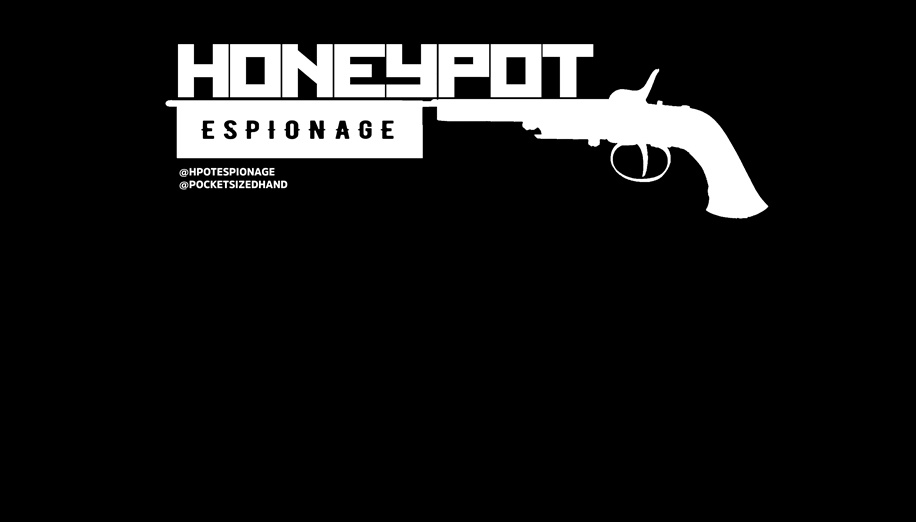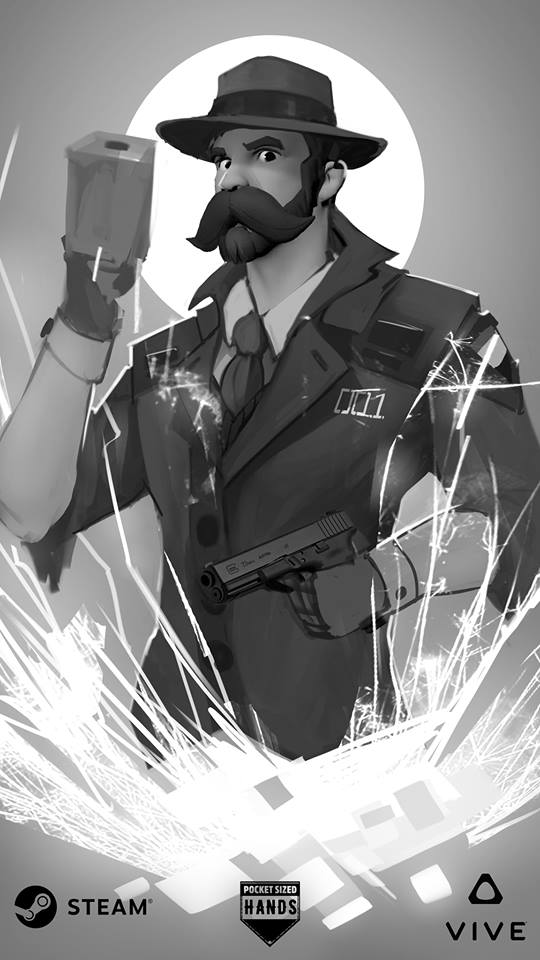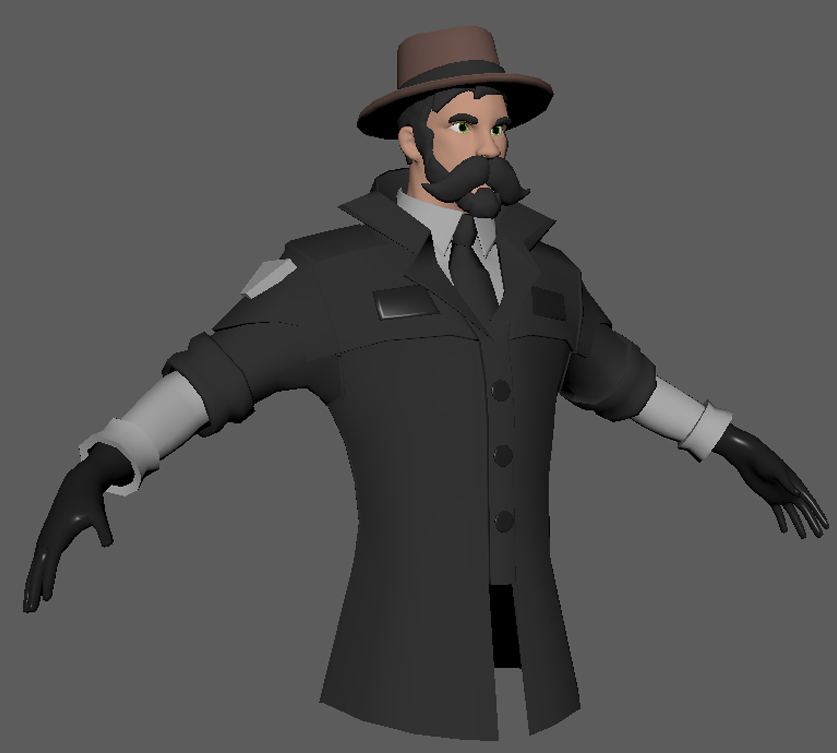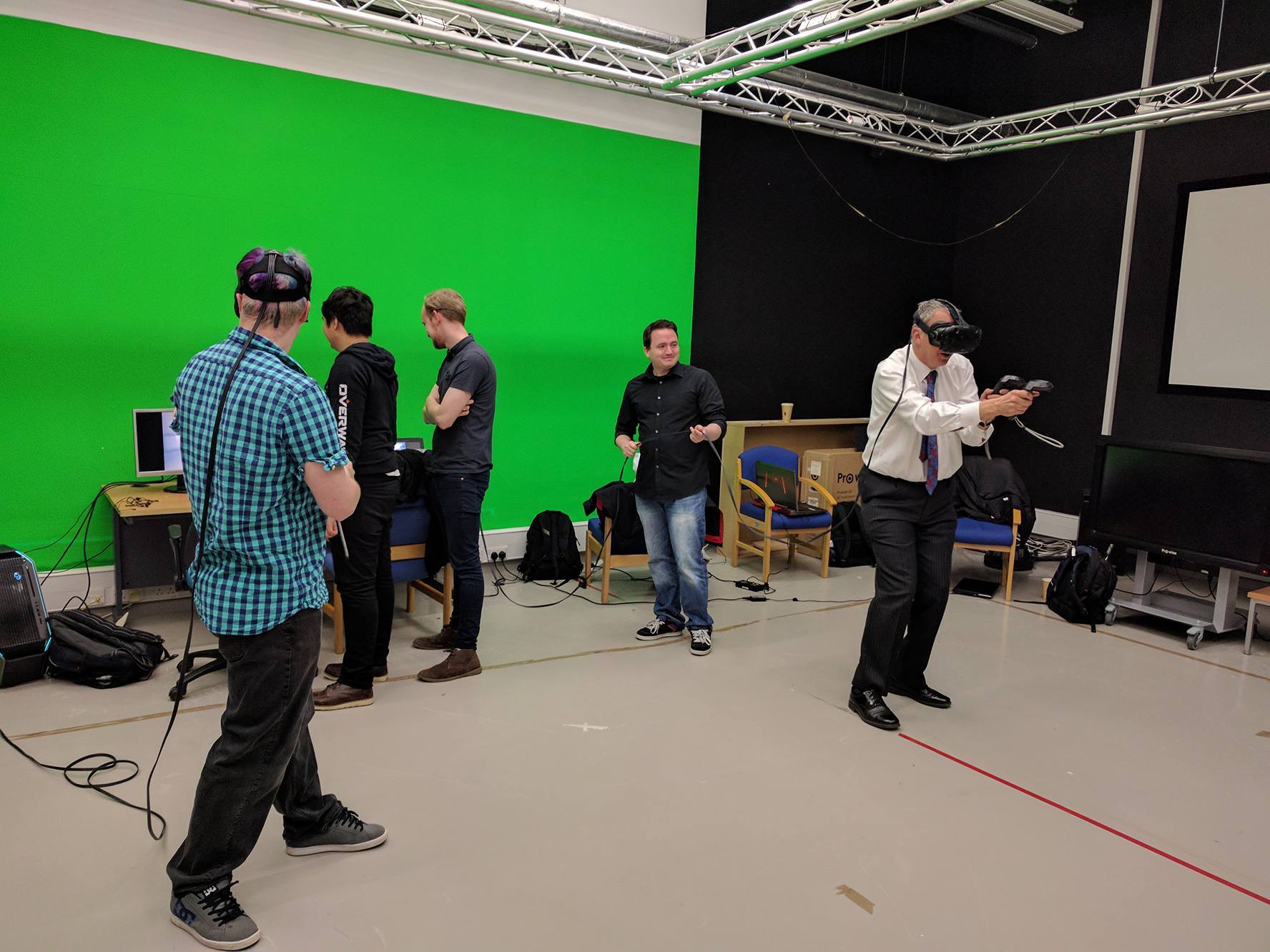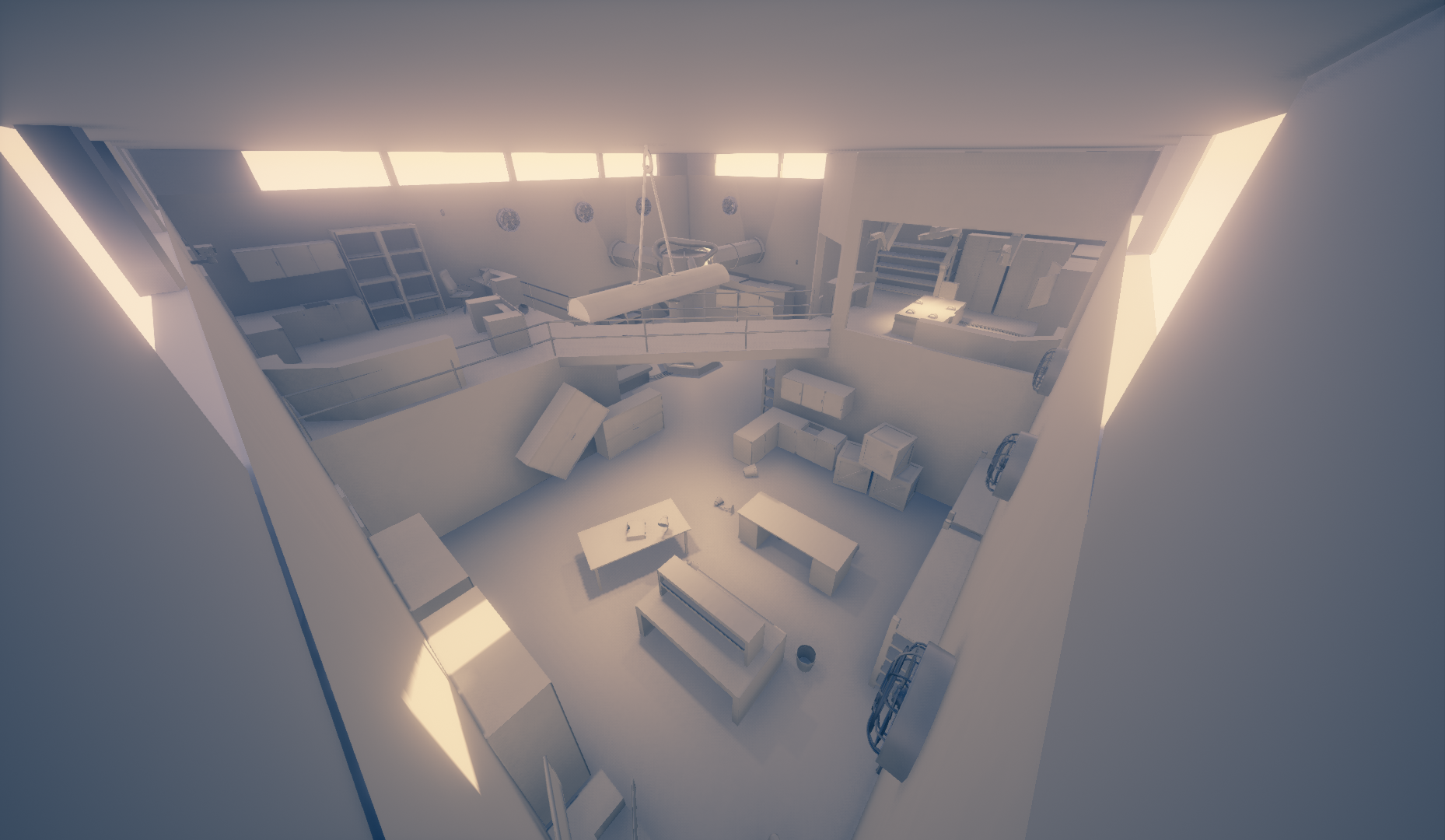Pocket Sized Hands
PUBLIC
United Kingdom, Abertay University
Members

Gary MCCartan
ADMIN
United Kingdom

Alan Yeats
MEMBER
United Kingdom

Rory Thomson
MEMBER
United Kingdom
Team Gallery
Project Overview
Honeypot Espionage is a Virtual Reality multiplayer stealth shooter, currently being developed for the HTC Vive. The players take on the roles of spies and are pitted against each other in a combat arena. The game’s main focus is stealth combat based on real-life movement; the spies have special abilities which allow them to stay invisible when they are not moving. However, if the player moves in real life, they start to materialize in-game as well, becoming visible for the other players to see. The slower they move in real life, the harder they are to see. They won’t be able to stay still for long, as a gauge will determine how much invisibility power they have, and in order to fill the meter up, they have to move. The players are equipped with lethal weapons and utility guns to use special abilities such as teleportation or setting traps and decoys to trick other players into revealing their location. The players will choose characters of different classes, providing a more challenging gameplay. Different game modes are planned, allowing the players to fight the way they want; such as king of the hill, deathmatch, team-up, and versus modes.
VR technology has a lot of potential in providing more engrossing and immersive experiences to the players. There are a lot of single-player games on the market but not many that can be enjoyed by multiple players. Our goal is to create a tense and exciting, but also accessible multiplayer experience for the widest audiences possible. In HoneyPot Espionage the player’s real life movements translate into in-game movements, correlating with player invisibility. This invisibility mechanic takes full advantage of the latest generation of VR technology as it was only made possible with the use of hand tracked motion controllers.
Our team decided on working with the HTC Vive over other VR devices because the technology is available to us. We are not ruling out the possibility of porting the game over to other VR devices however if the opportunity arises.
The multiplayer aspects of the game, for example match-making, tracking players, and networking, are still in progress. We are using the Azure cloud service to host our servers.
Project Milestones:
Pre-Production - Minimum Viable Product – End of April
We are aiming to finish our first playable prototype by the end of April. This will include all the major gameplay elements and representative assets. By playtesting we can make sure it is fun and we can see what elements will need iterated upon. Core elements: invisibility mechanic, teleport mechanic, player character model with inverse kinematics, one game mode, local multiplayer.
Production – Alpha – End of July
For this stage we will be iterating upon our prototype based on the testing and feedback received. We will build upon the core gameplay and implement additional elements to make it more challenging. Testing will be carried out throughout this stage as well to make sure the gameplay is fun and balanced well. Core elements: additional guns and abilities, game modes, game maps, multiple characters, character classes, balancing, networking, match-making.
Beta – End of August
By this stage all features and assets will be implemented, so most of the time will be spent on polishing. More testing will be carried out and any occurring bugs will be fixed. After this the game should be ready to be released on Steam.
As VR is still a relatively new field, more funding goes into the advancement of the technology and not the software and applications that are created for the different devices. Because of the lack of content however, customers are reluctant to sink money into the platform until they get their money’s worth, causing these devices, especially the high-end ones, not reaching the mass market stage just yet.
The best option would be releasing Honeypot Espionage through Steam as a digital download and working towards building up a solid player base. Our target audience are the early adopters of Virtual Reality technology and owners of the HTC Vive more specifically. We are aiming our game at players from the ages of 16 and up.
The business model would be ‘Freemium’; the game can be downloaded for free, while in-game purchases would provide the revenue. These additional ‘premium’ items would be purely decorative; players can customise their experience according to their preferences.
In order to enhance the gameplay experience we are planning to work closely with our target player base, which also helps raising awareness of our game. We will be conducting testing sessions both locally and remotely through Steam. We are in constant contact with our audience through social media and forums, plus we are taking every opportunity to showcase our game at events and expos to reach more players.
About Team
The original idea of Honeypot Espionage was pitched by a team of three programmers. Games have always been our passion and ever since Palmer Luckey first announced the Kickstarter campaign for the Oculus Rift, we have been fascinated by VR. When we played Hover Junkers for the first time last year, we knew VR was the next big thing. Over the last few months we fleshed out the concept and design of the game with the help of additional members from disciplines of game design, art and audio. Our student team, Pocket Sized Hands was born.
For Imagine Cup our core team comprises of three award-winning programmers: Alan Yeats, Rory Thomson and Gary McCartan, but three artists (character, environment, props), a level designer, an audio designer, and a producer will assist us in the development of the game.
Alan is a Computer Games Technology student at Abertay University and the technical lead on the project. His programming is focused on the technical aspects of the game, such as networking and systems, and he’s in charge of the team’s social media platforms as well. The skills he has gained throughout his studies has lead him to a position at Digital Sports Arena, a mobile development studio based in Dundee. As a programmer, he has developed tools that has helped speeding up and improving the QA process of DSA’s multiplayer football simulation game, GameDay Live. He has also worked on gameplay elements utilising programming languages and tools unfamiliar to him. Alan has reached the semi-finals for both the University Business Challenge and the Rising Star competitions.
Rory is a Computer Games Technology student at Abertay University as well. He takes on a variety of different tasks that come up in the development on the game, from inverse kinematics, to audio implementation, to game programming. With a strong interest in both programming and computer games from a young age, he pursued the path by learning C++ in his own time at high school and he developed a small platformer game using the Simple DirectMedia Layer library. He has built up his knowledge by following this passion through to university, and working on projects in his spare time to build up a portfolio of well-made games. As well as this, he takes a keen interest in competing in game jams; he recently won an award for best game at the jam. He has taken a massive interest in VR technology and its uses for creating immersive and new experiences for both casual, and serious applications. He is excited about both the current state of the VR market and the bright future that lies ahead for it.
Before applying to Abertay University Gary worked for the NHS as an A&E nurse. By the end of his time in A&E he was managing different areas of the department on a shift basis, he was coordinating patient flow and made sure staff had access to extra support at all times. His time in A&E helped him build the confidence to be a good leader and with this experience he was the right fit to become the project lead and programmer for Honeypot Espionage. Now as a Computer Games Application Development student, Gary has received a distinction two years in a row as well as taking the time to contribute to research projects at Abertay, building VR content to help researchers collect data on how people perceive potential hazards. Gary is also a devoted game jam participator, having taken part in 7 so far. He won the prize for Best Student Game at Jamchester 2016 alongside having a game featured in UploadVR.com as one of the top 5 VR games of the Global Game Jam 2017.
As Pocket Sized Hands we have been building a small buzz around ourselves recently and we have taken part in several competitions as a team. With Honeypot Espionage we were invited to take part in Pocket Gamers’ “Big VR Pitch”, which gave us the opportunity to pitch our game to industry veterans and journalists. The game was well received and gained valuable feedback. Through this event Honeypot Espionage was featured on PocketGamer.com alongside other gaming websites such as PCGamerN.com and VRTheGamers.com. Later on we reached out to Valve and were accepted on to their developer programme and have been approved to release Honeypot Espionage on Steam.
As a team, we have taken in part in two game jams. NATs (National Air Traffic Services) hosted a serious game jam at Abertay University in which we created a VR game that tests communication between flight controllers and air traffic controllers, and it was judged to be the winning game of the competition. More recently we took part in the Moray Game Jam and our game, Pocket Sized Guns, was chosen as the winner of the jam from a panel of industry experts.
Abertay got us into contact with Billy Thomson, creative director of Ruffian Games, who has been our mentor since development on HPE started. He would be our mentor for Imagine Cup as well, giving us guidance and feedback.

